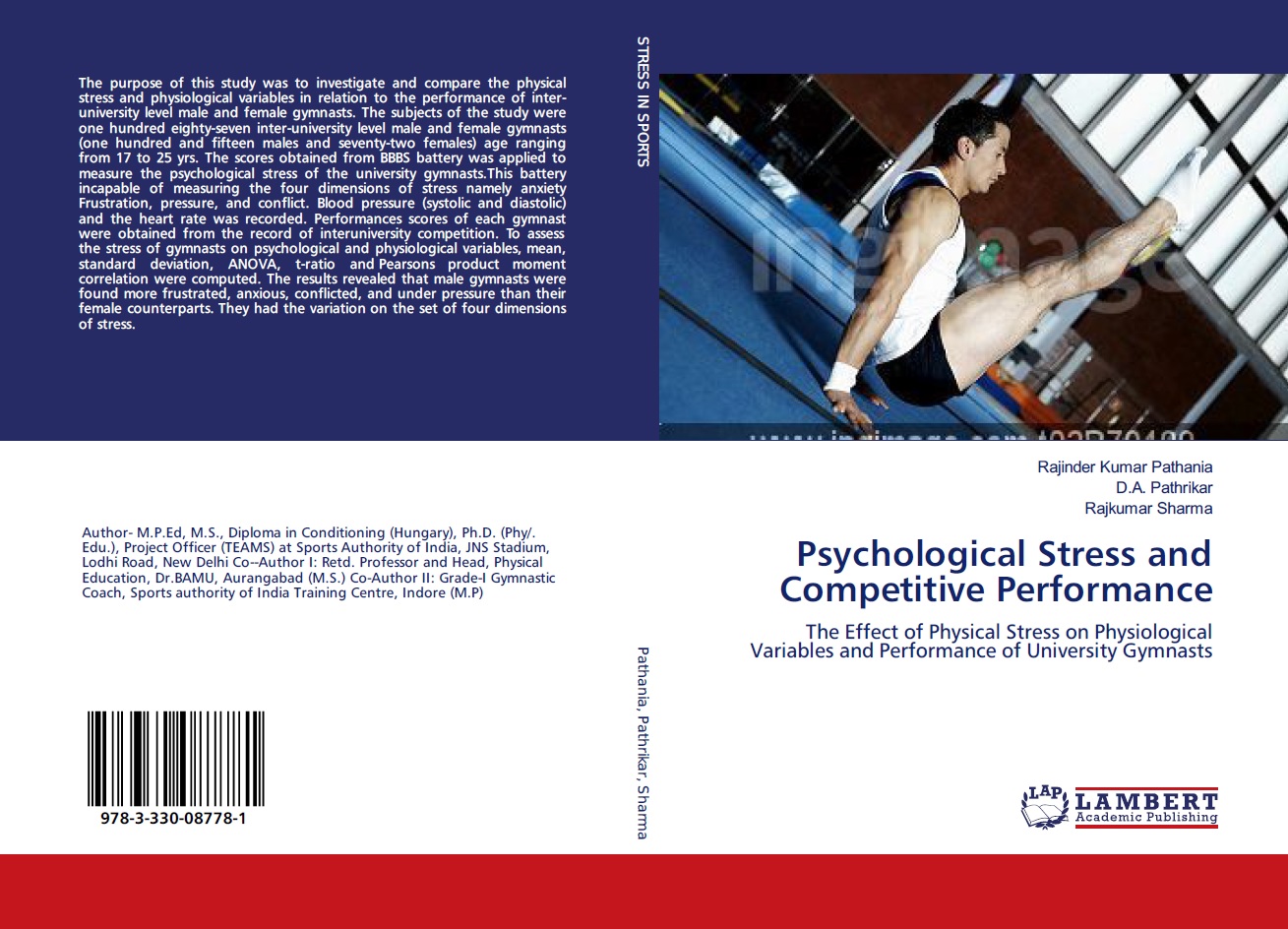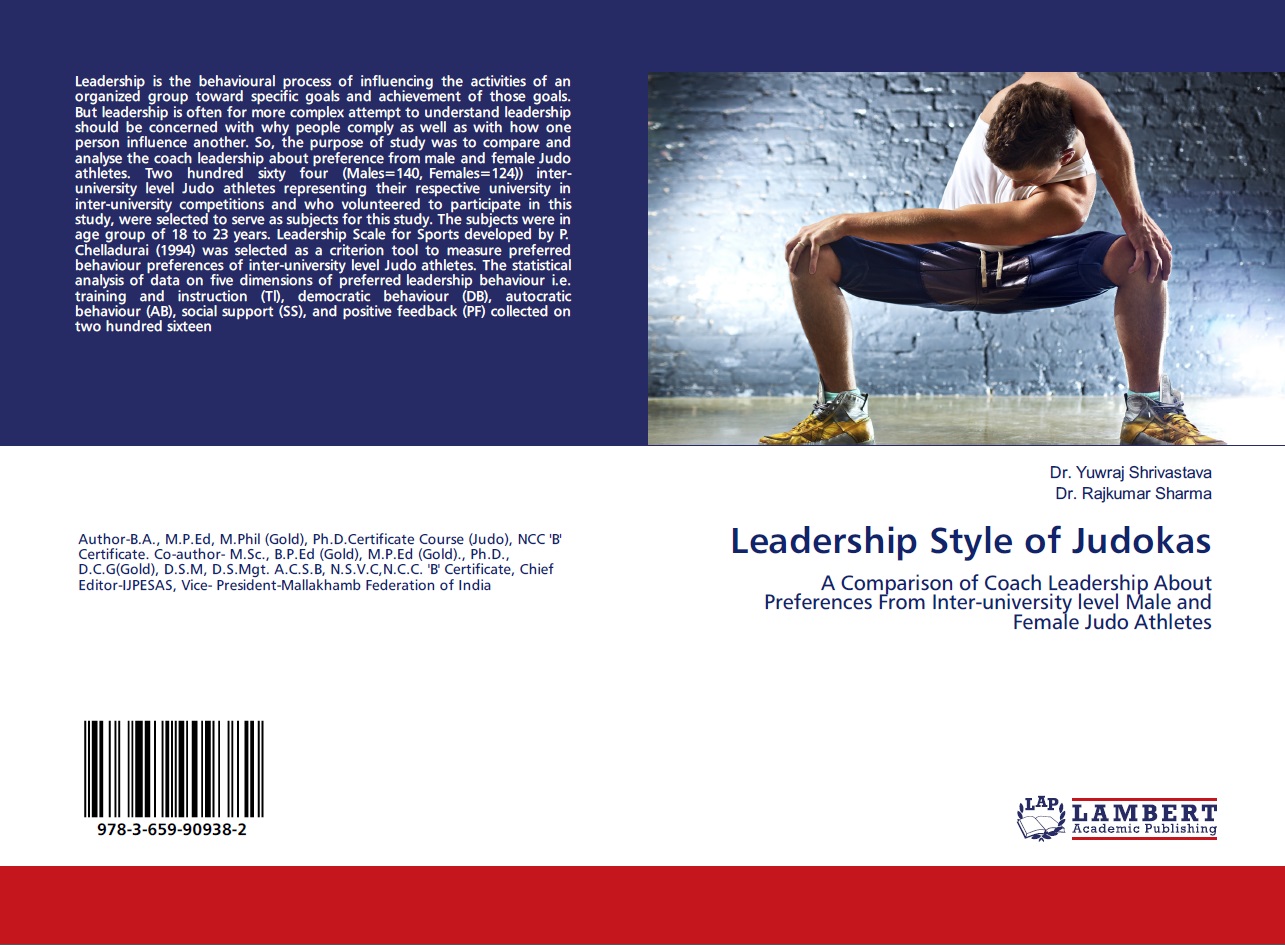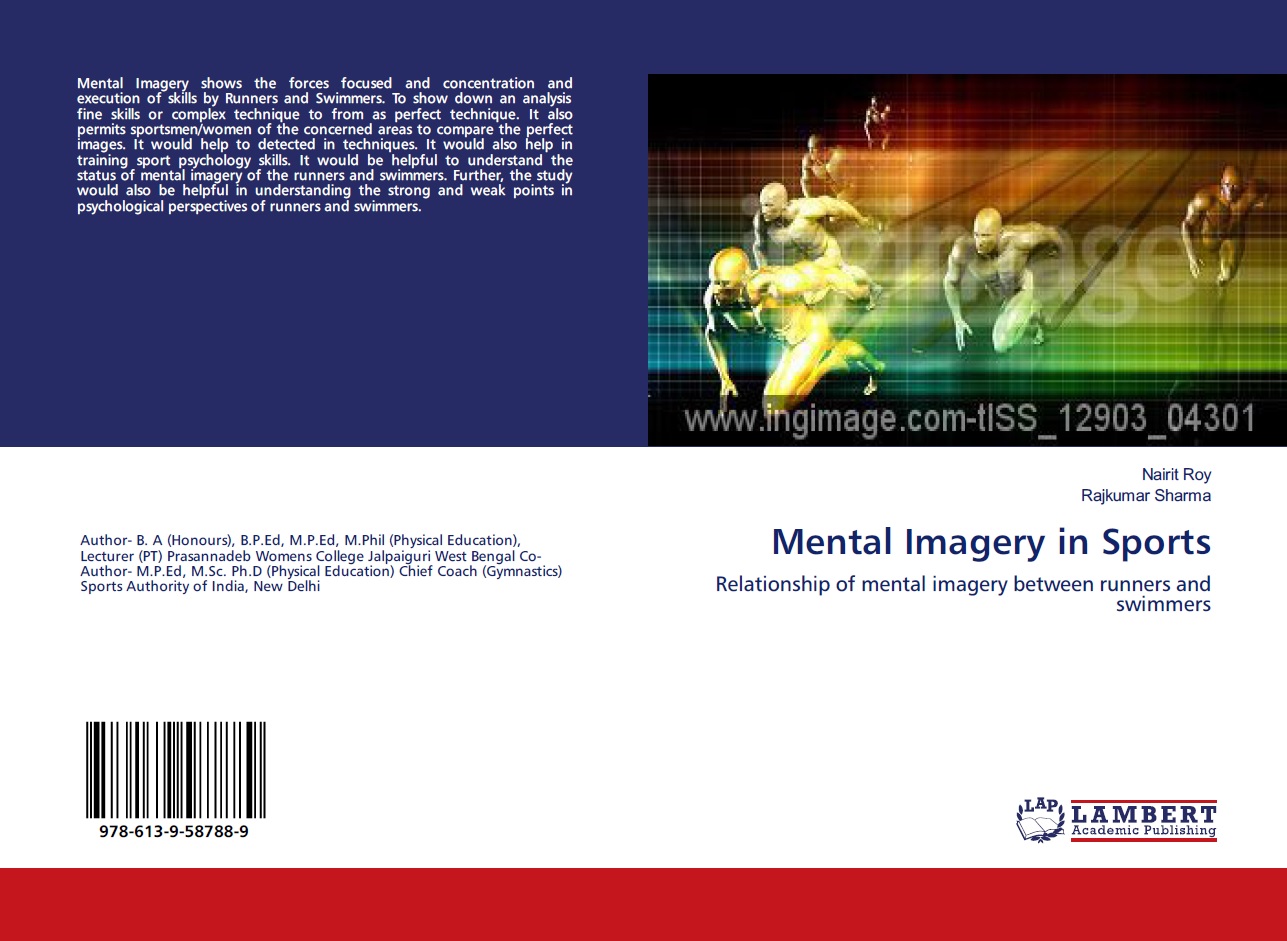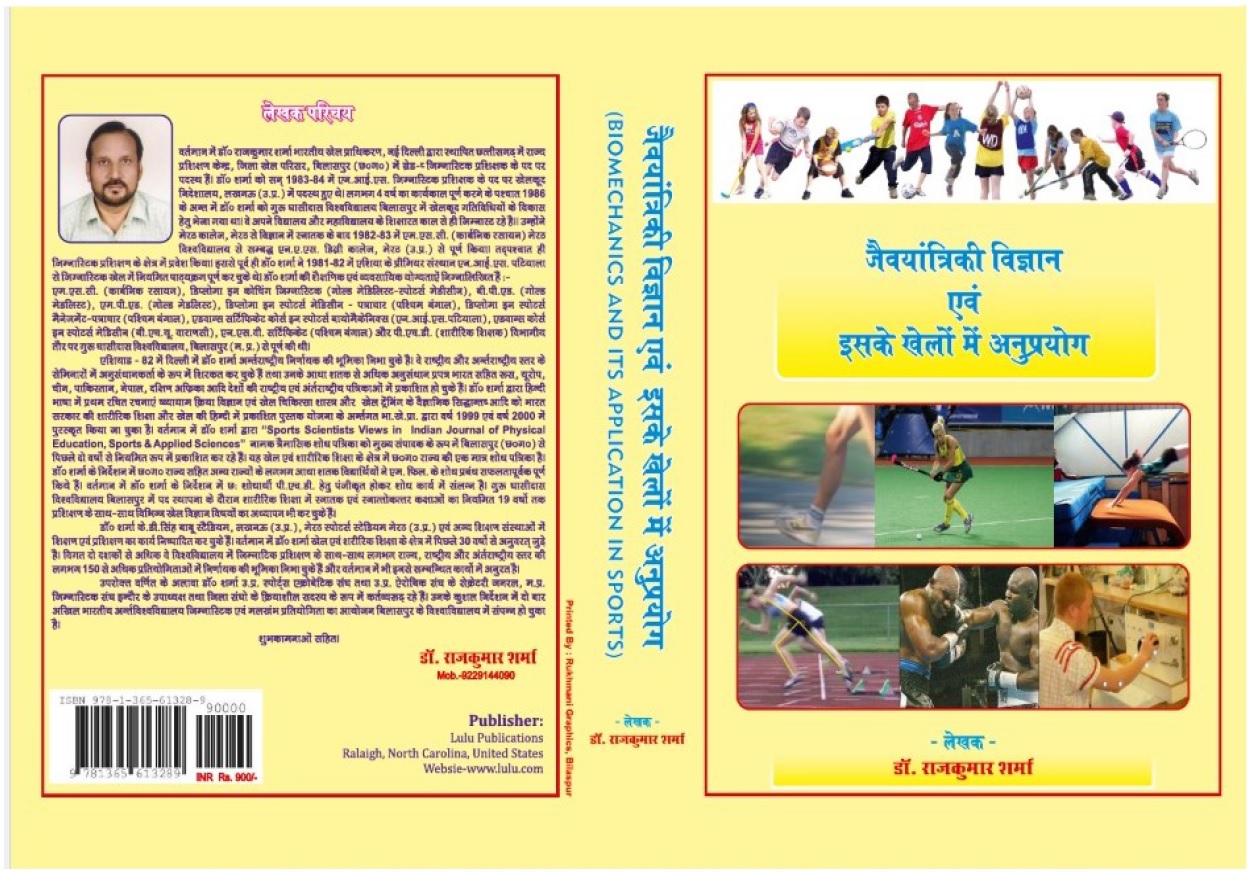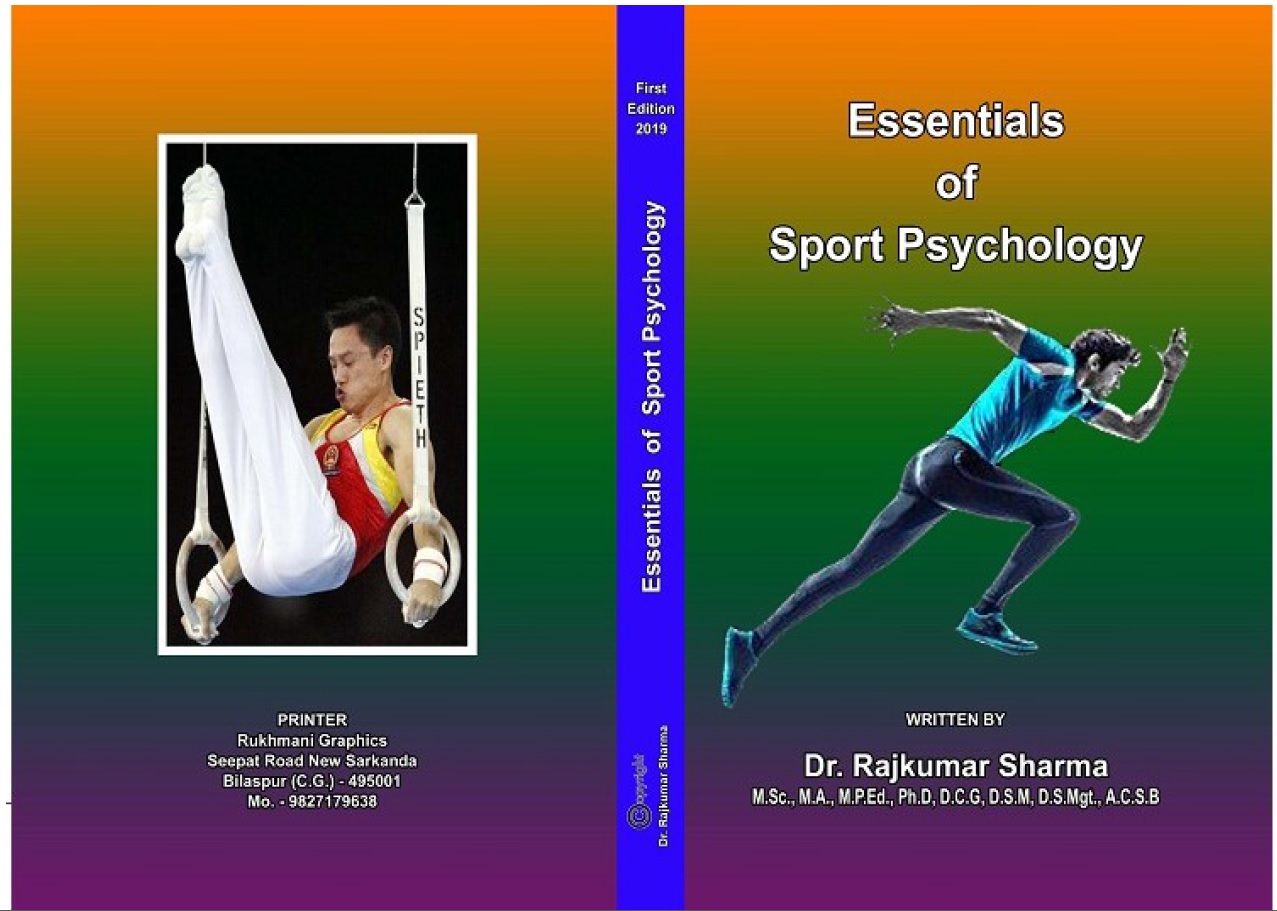| S.No. | Total View Count | Title of Manuscript | Page No | Download/ PDF |
|---|---|---|---|---|
| 1 | THEORITICAL CONCEPT OF VARIOUS PSYCHOLOGICAL ATTRIBUTES OF MALE AND FEMALE ATHLETES Author: Vinay Tomar 1, and Dr. Ganesh Khandekar 2 | 38-42 |  12 12 |
Article info
doi no.: 05-2016-44975451; DOI Link :: https://doi-ds.org/doilink/09.2023-77231596/IJPESAS/VOL 13/NO. 1/JAN./2023/A6
AFFILIATIONS:
1 Research Scholar, Department of Physical Education, Dr. C.V. Raman University, Kota, Bilaspur (Chhattisgarh) Email-vinaytomar1325@gmail.com
2 Assistant Professor, Department of Physical Education, Dr. C.V. Raman University, Kota, Bilaspur (Chhattisgarh) Email- Kganeshkhandekar@gmail.com
This research paper aims to provide a comprehensive theoritical concept of comparative analysis of the psychological attributes exhibited by male and female players in team sports. The study explores the potential differences and similarities in these aspects based on gender and their implications for team dynamics and performance. The research involved a mixed-methods approach, combining quantitative surveys and qualitative interviews to gather data from diverse sports teams. The findings suggest that while there are some gender-related patterns, individual variations are substantial. Understanding these nuances can contribute to better team management and performance enhancement strategies.
Keynotes: Leader, behaviour, psychological Skills, cohesiveness, gender.
.
References
Avolio, B. J., & Yammarino, F. J. (Eds.). (2013). Transformational and charismatic leadership: The road ahead (Vol. 3). Emerald Group Publishing.
Bass, B. M., & Riggio, R. E. (2006). Transformational leadership (2nd ed.). Psychology Press.
Bass, B. M. (1985). Leadership and performance beyond expectations. Free Press.
Cotterill, S. T., & Fransen, K. (2016). Athlete leadership in sport teams: Current understanding and future directions. International Review of Sport and Exercise Psychology, 9(1), 116-133.
Carron, A. V., & Eys, M. A. (2012). Team cohesion. In S. Jowett & D. Lavallee (Eds.), Social psychology in sport (pp. 142-155). Human Kinetics.
Chelladurai, P. (2007). Leadership in sports. Routledge.
Carron, A. V., Colman, M. M., Wheeler, J., & Stevens, D. (2002). Cohesion and performance in sport: A meta analysis. Journal of Sport & Exercise Psychology, 24(2), 168-188.
Carron, A. V., Brawley, L. R., & Widmeyer, W. N. (1998). The measurement of cohesiveness in sport groups. In J. L. Duda (Ed.), Advances in sport and exercise psychology measurement (pp. 213-226). Fitness Information Technology.
Doherty, A. J., & Stott, T. (2015). Athlete leadership in sport teams: Current understanding and future directions. International Review of Sport and Exercise Psychology, 8(1), 256-277.
Eys, M. A., Carron, A. V., & Bray, S. R. (2007). Group cohesion and individual adherence to physical activity. Journal of Sport & Exercise Psychology, 29(2), 219-232.
Filho, E., & Tenenbaum, G. (2011). The relationship between athletes' precompetitive emotional states, cognitive interference, and concentration disruption. International Journal of Sport
Johnson, U., & Taffelt, H. (2019). Do females prefer different leadership behaviors? A comparison of male and female soccer players' preferences. International Journal of Sport and Exercise Psychology, 17(4), 360-375.
Knoppers, A., Van Puyenbroeck, S., & Van Gorp, K. (2010). The relationship between work team characteristics and job satisfaction in Belgian universities. International Journal of Educational Management, 24(1), 7-21.
Kassing, J. W. (2007). Willing but unable? Gender and connectedness in coed youth sport. Sociology of Sport Journal, 24(4), 379-401.
Lirgg, C. D. (1991). Self-handicappers: Individual differences in the preference for anticipatory excuses. Personality and Social Psychology Bulletin, 17(5), 573-581.
Loughead, T. M., & Hardy, J. (2005). Leadership preferences of athletes. International Journal of Sport and Exercise Psychology, 3(3), 257-273.
Loughead, T. M., Kwon, Y., Myslinski, M. J., & Pack, S. M. (2016). Coach–athlete attachment and the quality of the coach–athlete relationship: Implications for athlete's psychological outcomes. Sport, Exercise, and Performance Psychology, 5(2), 129-143.
Northouse, P. G. (2018). Leadership: Theory and practice. Sage Publications.
Stambulova, N. B., & Wrisberg, C. A. (2017). Theories of career transitions in sport: A critical review and research agenda. Psychology of Sport and Exercise, 29, 133-144.
Spink, K. S., Carron, A. V., & Loughhead, T. M. (1996). Development of the Group Environment Questionnaire. Research Quarterly for Exercise and Sport, 67(4), 423-432.
Walker, N. A., & Walker, B. J. (2012). Leadership styles, competitive intensity, and organizational effectiveness. Leadership & Organization Development Journal, 33(4), 356-371
 admin@sportscientistsviews.com
admin@sportscientistsviews.com

